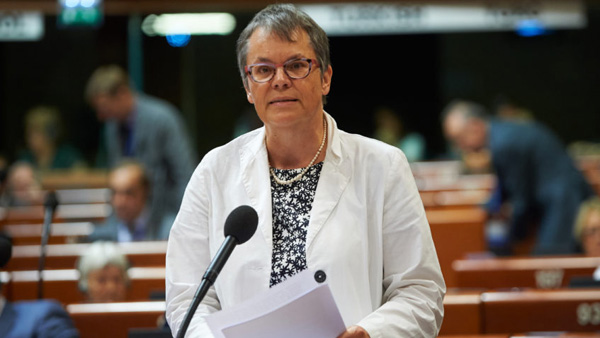On December 10, 1948, the 58 member states that constituted the United Nations General Assembly adopted the Universal Declaration of Human Rights (UDHR). This declaration has inspired many fundamental legal instruments in the field of human rights, including the European Convention on Human Rights.
The UDHR brings together in a single text human rights in terms of individual and political freedoms as well as economic, social and cultural rights. Together with the International Covenant on Civil and Political Rights and the International Covenant on Economic, Social and Cultural Rights, adopted by the General Assembly on 16 December 1966, it forms three constituent elements of the “International Bill of Human Rights”.
As we celebrate the 70th anniversary of the Universal Declaration, let us remember that human rights are never taken for granted and that our duty is to work constantly to affirm, enrich and develop them. In this context, on behalf of the Parliamentary Assembly, I would like to initiate a reflection on three points:
First, isn’t this finally the time to reconsider the artificial division of human rights into “civil and political rights” on the one hand and “economic, social and cultural rights” on the other? Let us remember that the UDHR itself did not make such a separation. We know that even the most beautiful freedoms are of interest only to those who have a minimum of resources to use them. At the same time, the violation of civil rights, such as the right not to be killed, tortured or arbitrarily imprisoned, can never be justified by a lack of state resources.
Secondly, let us recall the basic principle of the International Bill of Human Rights, which states that “the recognition of the inherent dignity and of the equal and inalienable rights of all members of the human family is the foundation of freedom, justice and peace in the world”. Unfortunately, we must note that the principles of equality, universality and indivisibility are once again being called into question. The status of women remains unacceptable in many countries. Minorities – ethnic, sexual, religious – still suffer discrimination and persecution. Human rights defenders and journalists are threatened, while the space for civil society is shrinking in many countries.
Finally, thirdly, new challenges are emerging. New communication technologies, artificial intelligence and genetics open up new opportunities for prosperity and development, but also constitute threats, for example to respect for privacy, equality, the right to work and human dignity.
The Parliamentary Assembly of the Council of Europe will continue to work on these avenues of reflection and to meet the challenges ahead, in order to contribute to the major political debates that are looming, while being guided by the Universal Declaration on Human Rights!


























































